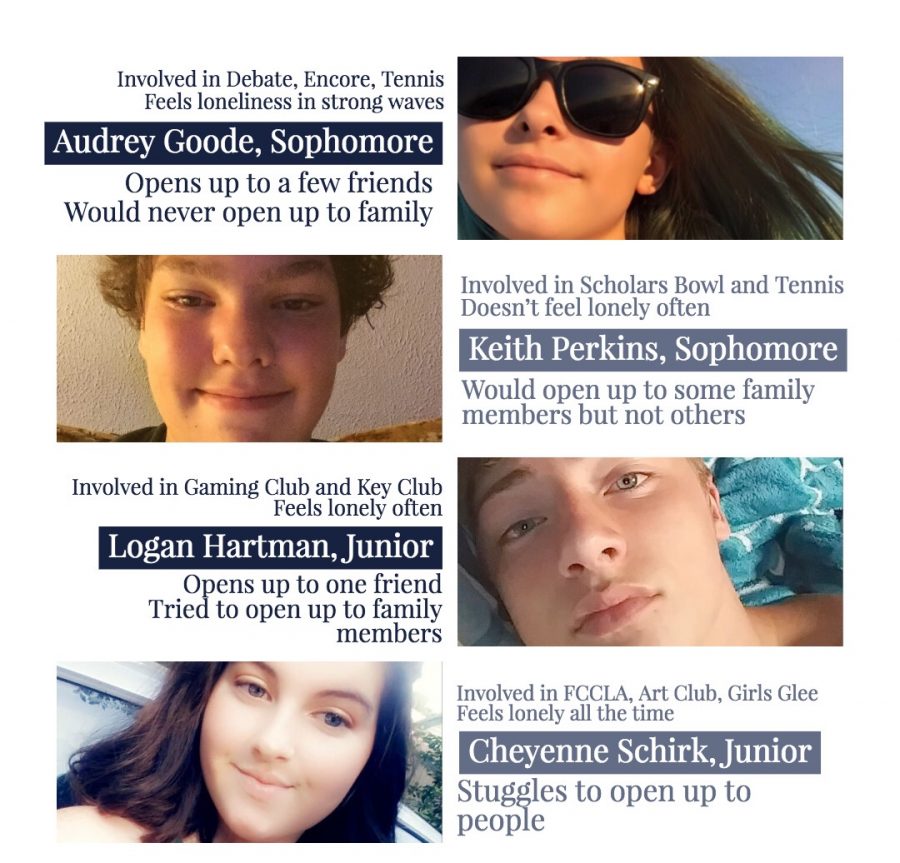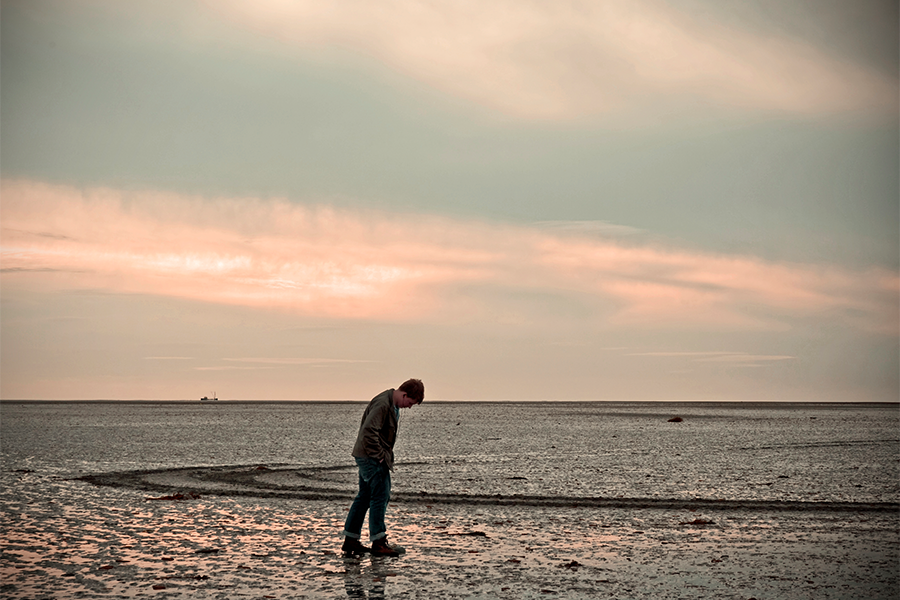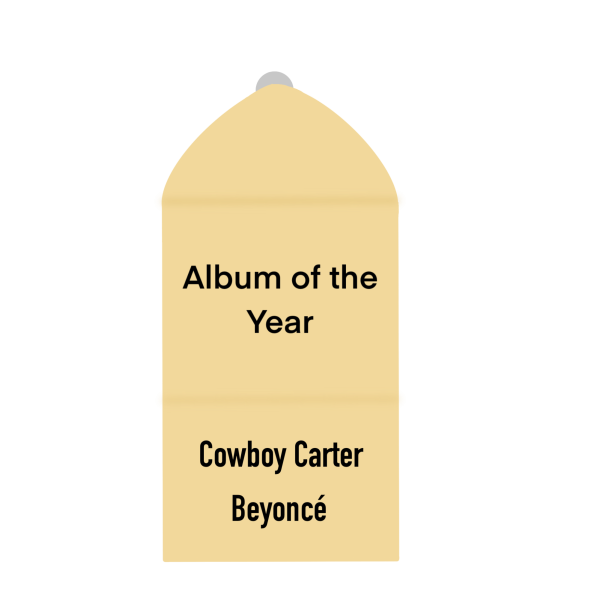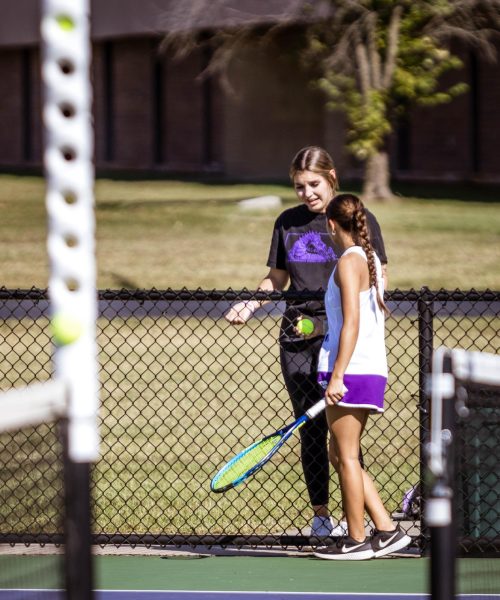Nowhere to go
Fischer reflects on the epidemic of loneliness in teenagers
“Do you ever feel lonely?”
I asked some friends of mine this. They are the kinds of people who had those stereotypical, small-town childhoods. The kinds of people who have been friends their entire lives.
But when I asked if they’ve ever felt lonely, they said yes.
I asked more people if they felt lonely. People who had friends in every class they took. They all said they felt lonely, too.
But why?

Turns out, loneliness has become a recent epidemic among the human population. Publications such as the New York Times and USA Today have explored how loneliness affects people and how it’s becoming an issue. There has also been a huge outburst on social media about mental health awareness, with more and more people talking about mental health.
People are coming to realize that this generation is the loneliest one yet.
Loneliness, in health, is defined as, “… the feeling that arises when there is a gap between social interactions you want and reality. It’s feeling separated, even alienated,” says John Cacioppo, a professor of neuroscience at the University of Chicago. Loneliness can be more serious than feeling down for a short period of time, too. It can cause higher levels of stress and lead to physical ailments.
Causes of loneliness vary, but there are a few key factors in most cases. Loneliness can stem from mental illnesses like depression and anxiety, or can result from a lack of attention. USA Today reported that having few friends can cause loneliness, but other outlets such as The Guardian and VICE also pointed out that our culture can negatively impact us, too. In American culture, we’re raised to be independent, but that hinders our social relationships.
That may not sound like a big deal, but psychologist Matthew Lieberman suggests that social interactions are as necessary to humans as food and water are. Lieberman also points to our culture having a negative impact on us.
“Social and physical pain are more similar than we imagine. We don’t expect someone with a broken leg to ‘just get over it.’ Yet when it comes to the pain of social loss [such as loneliness], this is a common — and mistaken — response,” Lieberman said.
Lieberman believes that people have a hard time admitting they’re lonely, and there’s good reason for this.
In an article by The Guardian, they shared the story of Keiran Lacey. Keiran Lacy is a man who experienced depression at age 14, and his situation only got worse from there. The Guardian writes, “When Lacey confided in friends his age, they… distanced themselves from him. When he turned to adults, ‘they said it was hormones – they can’t understand how serious it is.'”
Everyone told Lacey he’d be better in a few years.
But those responses didn’t help him.
“I felt that if I jumped off the school building, nobody would care,” Lacy recalls.
The sad truth is that many teenagers feel like this. And a lot of teenagers get the same responses that Lacey got.
No one listens to us.
And with our culture the way that it is, we’re expected to be independent and to help ourselves. We are ‘moody;’ we don’t have actual problems. Our loneliness isn’t an issue, and we shouldn’t treat it like it’s a problem.
But those notions are wrong — and we have to find a way to get past them.
So what do we do?
First, we need to stop stigmatizing loneliness and the stereotype of over-emotional teenagers.
As a society, we need to realize that everyone, even teenagers faces different problems in their life, and that those problems bear an emotional burden on us. We need to listen when people talk about their feelings, and need to share what we feel to help ourselves get better.
Second, we need to find ways to stop feeling lonely.
Keiran Lacey suggests finding something you’re interested in and taking control of your life. Do what will make you happy and stop worrying about what your parents will think, is his message. John Capaccio, a neuroscientist, tells us to accept that we can do more together than we can by ourselves. But most importantly, we need to open up to each other, trust each other, and help each other. We may struggle, but we can make it and change the world for the better in the process.
Your donation will support the student journalists of Pittsburg High School - KS. Your contribution will allow us to purchase equipment and cover our annual website hosting costs.










